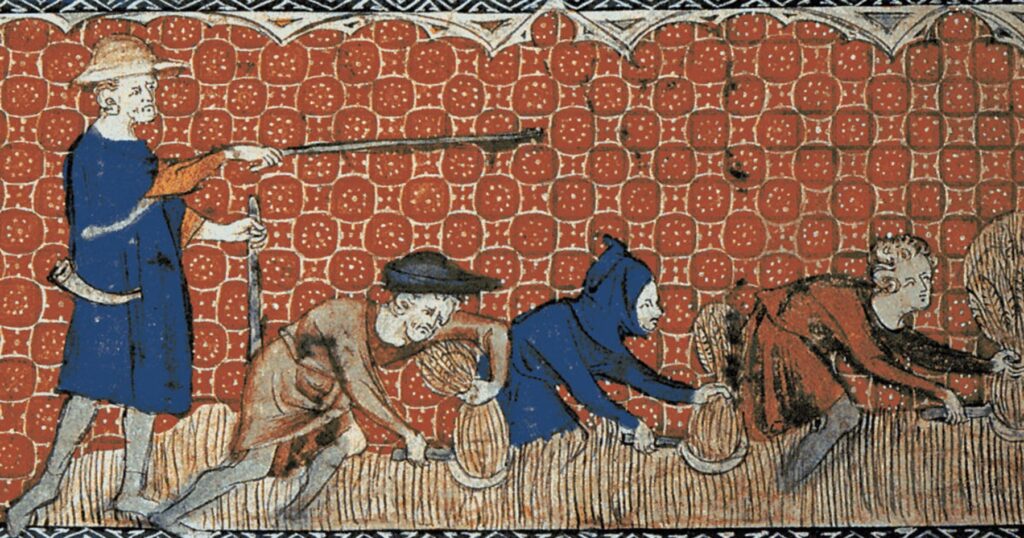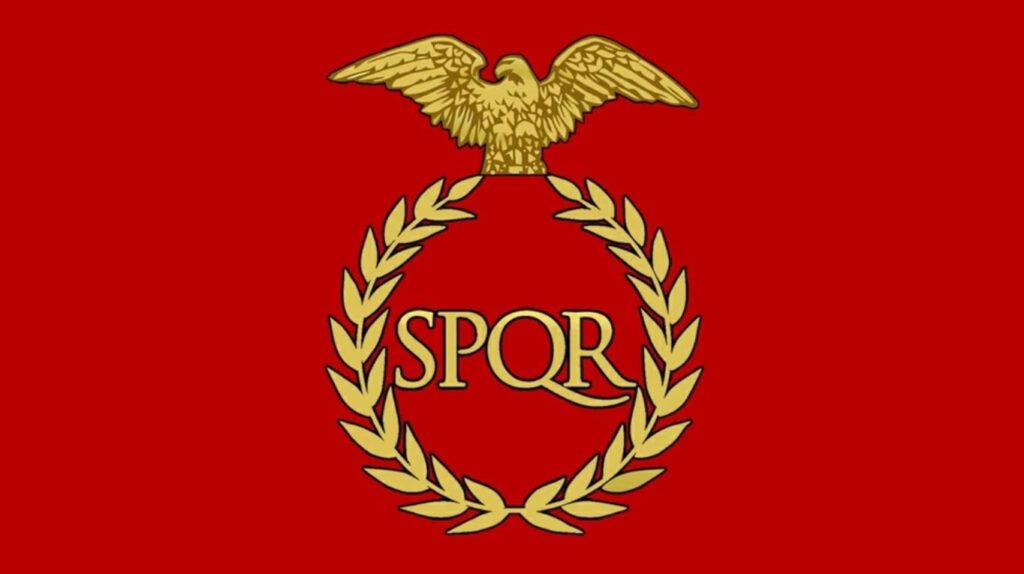Elites and the Masses: Legislative Bodies for a Functional Society
The Importance of Balancing Elites and Masses in Two Legislative Bodies

Sustainable societies need to both be intelligently led and serve the needs of all people, “the masses,” without creating second-class citizens. Only a small percentage of the population makes up the political class. But, without proper checks and balances, this political class will inevitably use its power to become lords and masters and treat the masses as second-class citizens, exploiting them as slaves, serfs, and expendables. This includes racial and ethnic cleansing.
Traditionally this was true of kings, princes, and feudal lords. Today, in more complex institutional and bureaucratic societies, this elitism is characterized by political parties, administrative officials, and those with enough wealth to buy political influence. This problem should be constitutionally fixed with the upper house of government representing elite expertise and a lower house representing the rights and will of the population. With each house having the power to veto one another. This allows only legislation that is deemed functional by the elites and deemed just and unoppressive to the populace.
Despite the efforts of the US founders to create a system of governance in which the wider population directed elites through their representatives, today’s legislation is crafted in omnibus bills by government officials, party elites, and special interest organizations. The majority of the population has been paying the bills these elites pass and slipping from independent middle-class citizens to lower-class voters who are becoming serfs in an industrial society. This is analogous to the agrarian serfs of the feudal societies that followed the collapse of the Roman Empire.
Ancient democracies and republics did not have large political classes and complex social institutions but were associations of self-sufficient landowners and businesses. Each household directly contributed to funding the government and took turns serving leadership roles without receiving pay. Aristotle argued, and Thomas Jefferson agreed, that democracies only work when the voting citizens are economically self-sufficient. However, because of the peace and prosperity that follows the personal (or household) freedom from exploitation by elites that self-governance provides, population growth and masses of workers without political power eventually arise. This means that those founding householders and their descendants become a new elite class with new masses of people, often made up of immigrants seeking jobs and freedom from exploitation in their own countries. This happened in ancient Greece and Rome, in Medieval England, and today in the United States.
Ancient Rome and Tribunes’ Power to Veto

A significant historical development occurred in Ancient Rome when the “plebs” (the people, or working classes) decided they had enough of fighting in the armies of the elites without any say in the legislation the Senate (made up of representatives of the landed elite) was passing. Without checks and balances, the Senate could pass legislation that burdened the masses or provided the elite with special privileges. When the plebs had had enough, they went on a nationwide strike, bringing Rome to a political and economic crisis. A new government (social contract) was created that spelled out the rights and responsibilities of both the aristocratic and working classes. Tribunes, representatives of the plebs, had the power to convene a people’s assembly; to summon the senate; to propose legislation; and, most significant power, veto the actions of the Senate, consuls, and other magistrates. This protected the interests of the plebeians as a class.
The House of Commons and the House of Lords in England

In England, the House of Lords developed from the “Great Council” that advised the King. This was composed of ecclesiastical leaders, hereditary nobles, and regional administrators. They could be called the elite or aristocratic class with the knowledge, skills, and wealth to guide society. Legal rights to grievance and due process were guaranteed to all free people by the Magna Carta, giving the House of Commons origins in the 13th and 14th centuries. Over time, with the rise in wealth and influence of the commercial class in the House of Commons, it eventually became the primary legislative body and controlled taxation, similar to the House of Representatives in the United States today. In industrial society, with the receding influence of the traditional aristocracy, the clash between owners and workers is represented by different political parties in the House of Commons, as no separate bodies represent owners and workers, as was in the case of the Senate and Tribunes in Ancient Rome. This division leads to revolutionary social unrest as these two groups fight for control of the House of Commons, rather than existing as two independent legislative bodies with the power to veto one another.
The Senate and House of Representatives in the US
At the Constitutional Convention in Philadelphia, the US Founders sought to create a Republican form of Democracy in which the wisdom of the educated elites would reside in the Senate and the populace represented in the House of Representatives. It was relatively easy to agree upon the lower house as representing the citizens who paid taxes and demanded rights and freedom from tyranny, but very difficult to determine who were to be the elites in the Senate and how these two bodies would properly check one another without either the disintegration into “mob rule” by the masses on the one hand, or oppression by moneyed interests or a political class, on the other. Some advocated Senators from a highly educated hereditary aristocracy as the Senate in Rome or the House of Lords in England, others advocated other methods of getting the best elite leadership, but what all agreed on was that the interests that appointed the members of each house should be as different as possible. As the new government was a “union of states,” it was finally (and narrowly) decided that state legislatures would appoint Senators. This would ensure both a check by the states on the expansion of federal power and a guarantee that popular cultural fads and mob rule could be checked by seasoned professionals of governance in the Senate.
The Destruction of the US Senate and Elite vs. Masses Partisanship
The 17th Amendment to the US Constitution, which repealed the states’ right to appoint their representatives to the Senate, and said that Senators would now be elected by the populace, made the Senate a relatively superfluous political body. As the same popular interests now elected both bodies, the system became a rather inefficient unicameral body. The US Congress, like the House of Commons in England, became a battlefield between elite and popular interests. In the US, political parties eventually hijacked the legislative process and represented the special interests of their donors, rather than the populace. Parties embedded themselves in government, getting their names put on ballots and only endorsing candidates that would march lockstep with party interests. The legislation became hammered out between party leadership, representing special interests, and administrative officials, creating a system with elements of plutocracy, corporatocracy, and ideological interest groups. “Trumpism,” which appealed to the contemporary American plebs, was a reaction to this loss of “a government of, by, and for the people.” Hilary Clinton’s reference to Trump supporters as “deplorable” drove home the division between the new class of American elites and average citizens who felt they had lost control of their country. The US now faces a crisis similar to ancient Rome, where the plebs demanded government reforms that gave them veto power over oppression by elites, and elites in fear of a revolt of the masses.1Evidenced by the fencing and a large number of troops stationed around the capitol after January 6, 2021.
The Failure to Represent the People in Russia and China

Karl Marx and Frederick Engels were the first academics to decry the growing impotence of the working class and the economic and political advantages of the “owners.” The disparities were very evident in England at the time. But, Marx’s proposed solution, a Communist political party that would seize control of “the means of production” through an act of theft, and then assume power “on behalf of the workers,” was, in effect, the means for a new elite to gain ownership and exploit the workers with its newfound power. The Russian and Chinese revolutions based on this model replaced traditional elites with new elites but did not give political power to the population in general. Neither the Communist Party in Russia or China initially understood economic incentives or the incentives necessary for economic development. The Soviet system, which created an inefficient and bloated bureaucracy that punished private entrepreneurs eventually collapsed.
The Chinese Communist Party, which eventually learned the importance of a free market, private ownership of property, and capital investment, has rapidly become the economic powerhouse of the world. But, they are in the analogous position of the industrialist control of the House of Commons in 19th century England, and the population has to follow the terms the CCP dictates with no one in power representing the interests of the working class. There are no independent legislative bodies representing knowledgeable and responsible knowledge on the one hand, and the rights and interests of the people on the other. The political development in China today is analogous to the rule of the Roman Senate before the “Twelve Tables” that guaranteed the rights of plebs, or England in the 13th century before the Magna Carta.
Improving Our Legislative Bodies to Represent both Elites and Masses
Our brief review of political history has shown that there are no major governments today that adequately balance the need for responsible, knowledgeable, elite leadership and the rights and interests of the general population.
Elites with political power will inevitably use that power for personal advantage and create a class system analogous to feudal lords and serfs. This happened in ancient societies and modern societies alike, including England, the United States, Russia, and China. Without proper protection, corruption and oppression are the norms.
Skillful and Responsible Leadership
Nevertheless, societies need responsible and knowledgeable leadership that:
- Understands the science of good governance.
- Has experience in fiscal management without adding debt.
- Will seek solutions to problems that will be good for everyone.
- Will suffer punishment for abuse of power and corruption.
In well-functioning and prosperous societies, both government administrators and political officials need such skills for responsible governance. One reason that England became powerful and wealthy was skillful and knowledgeable leadership in elite schools like Oxford and Cambridge. Greek and Roman leaders were similarly trained. Alexander the Great being tutored by Aristotle is a well-known example. And leadership in the Roman Republic was similarly trained. Such training was required firstly for successful management of family estates and businesses and required history, financial management, and people skills. In England, the knowledge of Greek and Latin was required for aristocrats who were to learn the lessons of success and failure in ancient Greek and Rome. United States founders also had such learning and debated strengths and weaknesses of different forms of governance in Greece, Rome, and England.
While being popular and good in rhetoric can move the masses, they do not create stable and functional governments. This is why democratic societies, unchecked by elites with the knowledge and skill of governance, elect actors and political panderers who end up destroying society. Plato taught this early on in Western civilization.
Protection of Rights and Freedoms
While the masses are not in positions of leadership, as human beings, they as important and worthy of a good life. A society that does not accept that all people are endowed with natural rights to life, liberty, and property will cause those who are denied these rights to rebel. The Twelve Tables of Law of Ancient Rome (449 b.c.), the Magna Carta England (1215), the US Bill of Rights (1789), and the UN Declaration of Human Rights (1948) were all important steps in setting limits related to the behavior of elites with respect to the masses who are as deserving of life as the people on power. Ancient Babylon’s success involved taking this principle a step further: elites who committed crimes suffered harsher punishment than the masses because they were trained to know better.
While everyone is not an expert trained in history, law, and succeeded in the management of an estate or business, they still desire, and deserve, a say in their government and a right to veto legislation that would place an involuntary burden on them. This was the principle that underlay the creation of Tribunes in Ancient Rome, of the House of Commons in England, and the House of Representatives in the United States. “No taxation without representation” is one phrase that sums up. And, this is why the House of Commons and House of Representatives became responsible to propose budgets, spending, and taxes, while the elites in the Senate or the House of Lords if they did their job, would check to make sure whether what the masses wanted was functional and wise, or would harm society.
Responsibilities and Rights: A Senate and a House of Representatives
It follows from this discussion that a “more perfect” form of government would be one in which there are two houses of government in a contemporary state in which the upper house, or Senate, represents elite responsibilities and the lower house, or House of Representatives, represents the general population.
As explained above, none of our contemporary governments reflect this division properly. In general, the West emphasizes rights and elites have significantly vacated their responsibilities, falling prey to fads, fashions, and partisan political rhetoric. This has enabled special interests to hijack the government creating a system of wealthy elites controlling legislation through political parties. Then communist opportunists become effective in arguing for a revolution in the name of the masses, while never intending to give the masses any rights or representation. Chinese civilization in the East, on the other hand, emphasizes responsibilities but has historically repressed human rights. Confucianism, which emphasizes duties people owe to others, those in power tend to demand obedience and treat the population like serfs.
England and America need to reconfigure the upper and lower houses to function in the roles of representing constructive elite responsibility, and the will of the people respectively. If not, we will continue to see the collapse and bankruptcy of society amid the pandering and self-serving rhetoric of power-seeking politicians. China, on the other hand, needs to convert its single-party elite leadership into a Senate and add a lower house that represents the will of the people. If not, the persecution of minorities, organ harvesting, and denial of rights to the masses will continue.
A Proper Upper and Lower House is only one of many Needed Improvements in Governance
The reconfiguration of governance to represent both the experience and skill of elites and the rights and desires of all people with two separate houses that check and balance one another is only one of many necessary improvements to modern governance systems. Other articles on this blog and on Life, Liberty, and the Pursuit of Happiness, 4.0 discuss other changes in governance for more peaceful, prosperous, and less corrupt and oppressive societies.

Spot on!